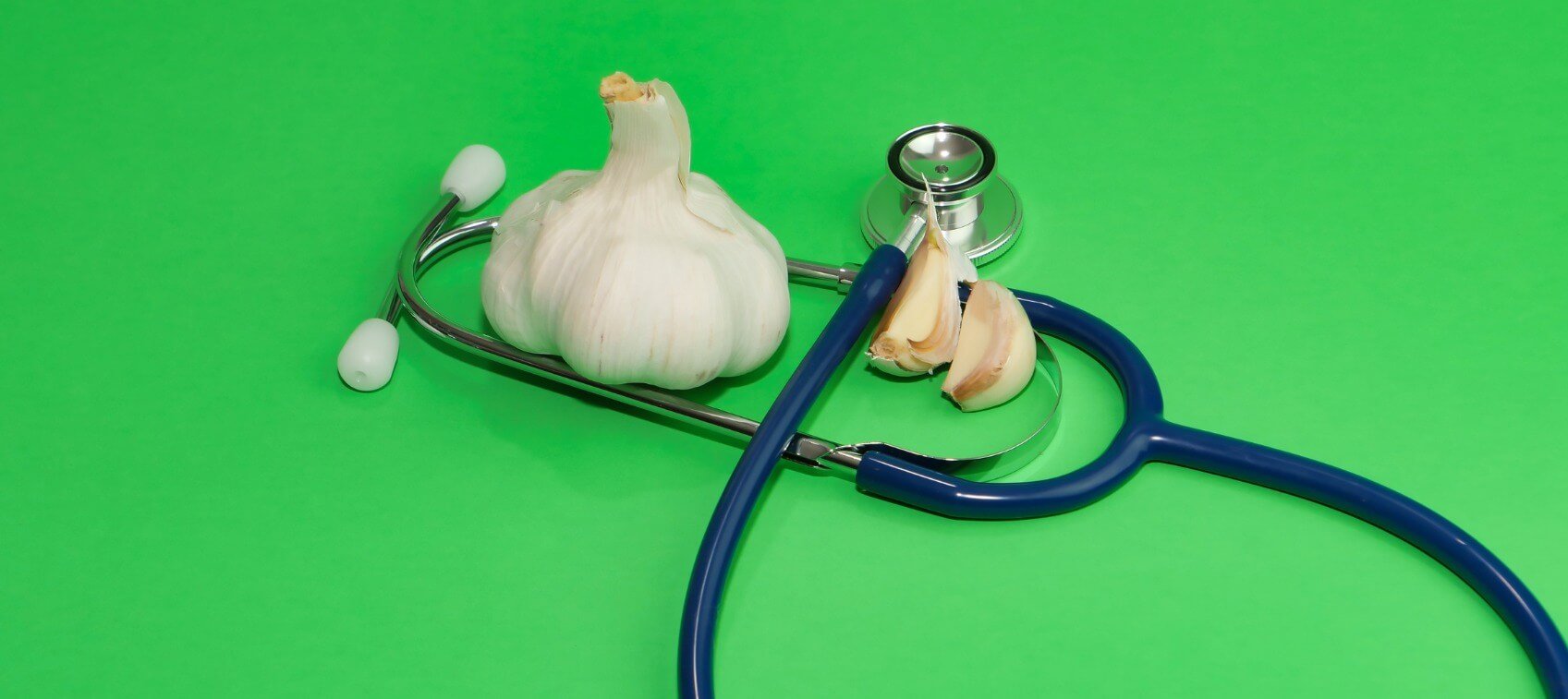
When it comes to blood pressure, it helps to envision how the heart essentially works to pump blood throughout your entire body through your veins, capillaries, and arteries.
As your blood flows throughout this system, it pushes against the walls of your arteries, and the force of this pushing is what we call your blood pressure. If you have high blood pressure, this basically means that the pressure inside your arteries is too strong, and it is often a result of the very small arteries in your body, called arterioles, becoming tightened.
When these arterioles become too constricted, your heart has to work harder to make sure that your blood still gets pumped through them, and this results in excess pressure.
High blood pressure can negatively impact your health in a few ways:
- Hardening of your arteries
- Enlargement of your heart
- Kidney damage
- Eye damage
Because of these potential effects, it is important for high blood pressure to be treated or supervised by a medical professional. That said, there are some vitamins and supplements that may help you manage high blood pressure and maintain a healthy and regulated blood pressure.
1. Garlic
Garlic is believed to offer a variety of health benefits, and one review found that garlic supplements may be an effective way to reduce blood pressure in patients dealing with high blood pressure. It may be effective for improving cardiovascular health and cholesterol levels.
The review concluded that garlic supplements did help lower both systolic blood pressure and diastolic blood pressure, and the improvements were considered similar to those of medications for high blood pressure.
A study done in 2019 also found that garlic supplements helped lower blood pressure so much that the risk of developing certain cardiovascular conditions decreased by around 16-40%.
A third study also explored the effects of garlic supplementation on blood pressure, specifically in patients whose high blood pressure was not being controlled through other means. This study found that garlic helped lower blood pressure significantly.
2. Potassium
Potassium is a key nutrient in your diet for many reasons, one of which is the fact that the more potassium you consume, the more sodium is flushed out of your body through your urine. Additionally, potassium is believed to be a key part of maintaining a healthy blood pressure because it lessens the effects of sodium and may work to decrease the pressure in your arteries.
Potassium can be found in foods such as:
- Apricots
- Cantaloupe and honeydew melons
- Avocados
- Certain dairy products, including fat-free milk and fat-free yogurt
- Grapefruits
- Mushrooms
- Potatoes
- Peas
- Spinach
- Tomatoes
A study regarding the impact of potassium supplements on blood pressure found both potassium chloride and potassium citrate supplements to be effective at lowering blood pressure.
Potassium may be a great option when it comes to dietary supplements for managing high blood pressure, and you should talk to a physician before taking potassium supplements.
Your doctor will check your current levels of potassium in order to decide whether or not potassium supplements are necessary and safe.
3. Magnesium
Magnesium is one of several essential minerals for your health, and it has long been recognized for its wide variety of potential health benefits. More specifically, magnesium is largely recognized for the effects it may have when it comes to stress reduction, and many believe that because magnesium may reduce stress, blood pressure may be reduced subsequently.
One study investigated the effects of multiple types of dietary supplements on blood pressure, and found that several, one of which was magnesium, may be highly effective at working to reduce blood pressure.
Another study looked specifically at magnesium itself, and explored the effects of magnesium on blood pressure in patients with certain underlying health conditions. The study found that magnesium supplements led to a significant reduction in several types of blood pressure.
Thus, magnesium supplements may be a great way for you to help support healthy blood pressure, and many people may actually have a magnesium deficiency without realizing it.
4. Vitamin B Complex
The vitamin B complex, and specifically vitamin B9 which is folate or folic acid, is thought to be effective at managing blood pressure.
Eating a wide variety of fresh fruits and vegetables is a good way to ensure that you are getting plenty of B vitamins, specifically enough folate. Folate may be effective at lowering blood pressure particularly when folate supplements are taken alongside the blood pressure medication enalapril, and taking these two forms of treatment together may reduce the risk of stroke as compared to taking blood pressure medication by itself.
When it comes to the B vitamins as a whole, one study on the effects of B vitamins on blood pressure in rats found that after 10 days of B vitamin supplementation, the blood pressure of the animals that received supplements had been greatly reduced, and oxidative stress, too, was reduced.
Another study found a significant association between high blood concentrations of homocysteine and high blood pressure, and these levels of homocysteine are thought to be indicative of a deficiency in either vitamin B9 or vitamin B12. That said, the study did not explore the effects of supplementation of either of these vitamins on blood pressure, so more research needs to be done in order to confirm whether B vitamin supplements may help lower blood pressure in humans.
5. Omega-3 Fatty Acids
Omega-3 fatty acids have long been recognized for their benefits when it comes to heart health, and for this reason they are also thought to be beneficial in terms of blood pressure.
Omega-3 fatty acids can be found in the following food sources:
- Flaxseed oil
- Chia seeds
- Walnuts
- Fish, such as salmon, herring, sardines, and mackerel
- Soybeans
- Kidney beans
- Eggs
It may be easier than you realize to end up with a deficiency of omega-3 fatty acids, especially if you do not consume adequate amounts of nuts, seeds, beans, or fish.
For this reason, omega-3 fatty acid deficiencies are somewhat common, and you should consult your physician if you think you may be dealing with this kind of deficiency.
One study on the effects of fish oil, which is high in omega-3 fatty acids, found that daily doses of certain omega-3s led to significant reductions in blood pressure, and this in turn may also reduce the risk of certain cardiovascular conditions.
Another study investigated the effects of omega-3 fatty acids on blood pressure in patients with type II diabetes, and the results showed that there was a significant overall reduction of blood pressure in the group that received supplementation.
All of this being said, it is believed that fish oil, and omega-3 fatty acids in general, may effectively lower blood pressure depending on the dose. All in all, more research is needed to explore the effects of omega-3 fatty acids on blood pressure.
6. Calcium
Calcium is just one of several minerals that are essential for your overall health and wellbeing, and it is crucial for healthy and strong bones and teeth as well as the release of certain hormones and enzymes.
When it comes to blood pressure, calcium is an important part of maintaining a healthy blood pressure because one of its many functions is to help your blood vessels tighten and relax when they are supposed to. Calcium can be found in food sources such as dairy products, fish, and dark, leafy greens.
One study looked at the effects of extra calcium on blood pressure, and the results showed that an increase in one’s daily intake of calcium led to a slight reduction in both systolic and diastolic blood pressure, and the effects were more significant with higher doses of calcium. The reductions were also more significant in both women and men between the ages of 11 and 82, and then the reductions became less pronounced in older adults.
An additional study investigating the effects of potassium, magnesium, and calcium on blood pressure found that potassium moderately lowered blood pressure, but magnesium and calcium did not show the same results. Thus, there is conflicting research, and it may be necessary for further studies to be conducted in order to confirm the effectiveness of calcium for management of high blood pressure.
7. Vitamin D
Vitamin D is one of many essential nutrients, and it works to support your bone health, immune health, and regulates your body’s absorption of calcium.
Vitamin D deficiency has been thought to increase the risk of certain ailments and health conditions, and vitamin D deficiencies also put you at risk of weakened bones and reduced heart health. Having a vitamin D deficiency may also be linked to an increased risk of developing high blood pressure, which is why vitamin D supplementation may be beneficial in terms of managing blood pressure.
There are certain factors that increase a person’s risk of developing a vitamin D deficiency, such as:
- Individuals who do not get a lot of time in the sun, such as those living in a cloudy area
- Older adults
- Individuals following restrictive diets
- Individuals with certain health conditions that impact their body’s ability to absorb vitamin D
One meta-analysis concluded that vitamin D may be linked to reduced blood pressure, but that more research would be needed in order to determine causation rather than just correlation.
Another meta-analysis, however, done by the CDC, concluded that vitamin D supplements did not work to lower blood pressure in the general population, but that more research should be done particularly involving subjects with low levels of vitamin D.
Thus, vitamin D supplements may be somewhat beneficial for your heart health and healthy blood pressure, but there is not sufficient research as of now which confirms that this kind of supplementation has a direct effect on your blood pressure.
Safe Consumption Of Dietary Supplements
When it comes to dietary supplements that you are taking for any reason, it is always a good idea to consult your physician before you begin taking any vitamins, minerals, or other supplements that you have not used before.
When taken in excess, certain vitamins and minerals may build up to toxic levels in your body, and this is most often the case when a supplement contains a dosage that is too high, or when the person taking the supplements is not actually deficient in those specific nutrients, and they build up as a result.
When it comes to high quality health solutions backed by medical experts, Healthy Directions has what you need with our wide variety of vitamins and supplements. Healthy Directions provides you with access to doctors, experts, and products all in one place, and we are committed to bringing you natural health guidance and premium service without a catch.
The Bottom Line
Your heart works to pump your blood throughout your whole body, and your blood pressure has to do with the pressure of your blood pressing against the walls of your arteries. High blood pressure happens when your arterioles constrict such that your heart has to begin working much harder in order to make sure that your blood still passes through your arteries and gets where it needs to go.
Supplements that may work to help maintain healthy blood pressure include magnesium, potassium, vitamin D, calcium, omega-3 fatty acids, vitamin B complex, and garlic.
Some of these supplements have more research that proves their effectiveness than others do, and a good rule of thumb is to consult your physician regarding the potential impact of certain vitamins and supplements on blood pressure before you try them out.


